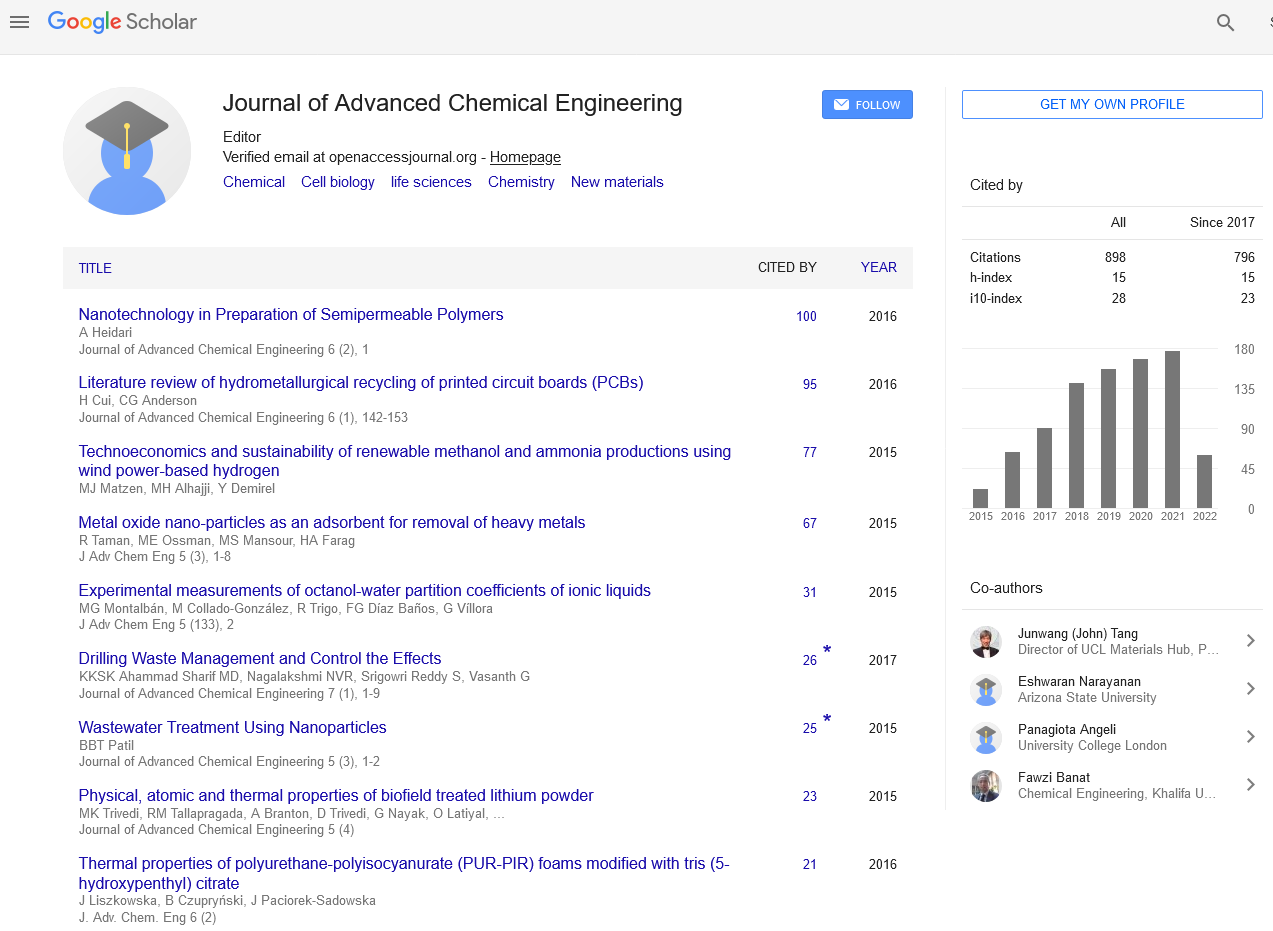Indexed In
- Open J Gate
- Genamics JournalSeek
- Smithers Rapra
- RefSeek
- Directory of Research Journal Indexing (DRJI)
- Hamdard University
- EBSCO A-Z
- OCLC- WorldCat
- Scholarsteer
- Publons
- Geneva Foundation for Medical Education and Research
- Google Scholar
Useful Links
Share This Page
Journal Flyer

Open Access Journals
- Agri and Aquaculture
- Biochemistry
- Bioinformatics & Systems Biology
- Business & Management
- Chemistry
- Clinical Sciences
- Engineering
- Food & Nutrition
- General Science
- Genetics & Molecular Biology
- Immunology & Microbiology
- Medical Sciences
- Neuroscience & Psychology
- Nursing & Health Care
- Pharmaceutical Sciences
Potential of dry fermentation using novel reactors
2nd International Conference on Advances in Chemical Engineering and Technology
November 16-17, 2017 | Paris, France
Regina J Patinvoh, Ilona Sarvari Horvath and Mohammad J Taherzadeh
University of Boras, Sweden
Scientific Tracks Abstracts: J Adv Chem Eng
Abstract:
Dry fermentation for biogas production is gaining significant interest due to its economic feasibility and easy handling of digestate. In industries, biogas reactors processing wastes with high water content are most common but the use of solid wastes such as agricultural, municipal and crop residues is becoming more attractive. Processing of these kinds of wastes for biogas production has been very challenging for industries and developing countries due to problems with feeding, mixing, and appropriate technology for operation. Hence, there is a need for reactors that are simple to operate, robust in nature and cost effective. Innovative plug flow and textile bioreactors were developed to solve these problems. The plug flow reactor has sealed buffer system at the inlet part of the reactor and an impeller between the inlet and outlet for better performance of the process. This reactor was developed for continuous dry digestion processes and its efficiency was investigated using manure bedded with straw at 22 % total solid content. The textile bioreactor was made of advanced textiles and coated polymers which make the bioreactor durable, easily transportable and highly resistant to UV light and high temperature. The efficiency of the textile reactor was also investigated for batch digestion of manure bedded with straw at 22, 27 and 30 % solid content. The plug flow reactor worked at increasing organic loading rates of 2.8, 4.2 and 6 gVS/L/d and retention times of 60, 40 and 28 days, respectively. Organic loading rates up to 4.2 gVS/L/d gave a better process stability, with methane yields up to 0.163 LCH4/ gVSadded/d which is 56 % of the theoretical yield. The textile bioreactor was quite simple to operate. Methane yield after acclimatization increased from 183 to 290 Nml CH4/gVS.
Biography :
Regina J Patinvoh is a lecturer in Chemical and Polymer Engineering department at Lagos state University, Nigeria. She obtained MSc in Chemical Engineering from University of Lagos, Nigeria (2010) and Lagos State University (2012). She is currently a PhD student in Biotechnology at University of Borås, Sweden. Areas of specialization include Anaerobic digestion, Solid state fermentation, Biological pretreatment, Waste management and Bioremediation.


